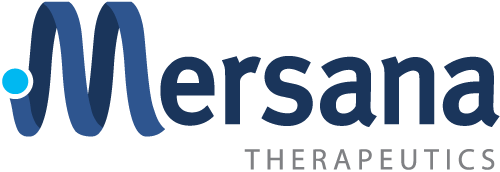Mersana Therapeutics Raises $27M to Advance Fleximer Antibody-drug Conjugates
NEA's David Mott Joins Board as Chairman
Mersana Therapeutics, Inc. a biopharmaceutical company developing its Fleximer® antibody-drug conjugate (ADC) platform and pipeline of small molecule Fleximer conjugates, announced today that it has closed a $27million Series A-1 financing led by new investor New Enterprise Associates (NEA). Participation in the round also included new investor Pfizer Venture Investments and existing investors Fidelity Biosciences, ProQuest Investments, Rho Ventures and Harris and Harris Group.
The proceeds from this financing will be used to advance Mersana's Fleximer-based ADC technology and to generate a pipeline of proprietary next-generation ADCs. In conjunction with the investment, NEA General Partner David Mott will become Chairman and Sara Nayeem, M.D., Principal at NEA, will become a Director. Mersana is the first biopharma investment for the recently announced $2.6 billion NEA 14 fund.
"Using antibodies and other targeting agents to deliver potent drugs to the site of tumors and disease while avoiding off-target toxicities has long been pursued almost as a holy grail in the biopharmaceutical industry,” said David Mott, NEA General Partner and new Board Chairman at Mersana. “Recent breakthroughs in antibody-drug conjugates led by Seattle Genetics, ImmunoGen, and Genentech have begun to deliver on that quest as evidenced by the August 2011 approval of ADCETRIS® and the promising Phase 3 results for trastuzumab emtansine (T-DM1) presented at the American Society of Clinical Oncology meeting in June 2012. Mersana’s Fleximer antibody-drug conjugate platform has the potential to lead the emergence of the next-generation of antibody-drug conjugates, which address limitations of the prior technologies and offer tremendous benefits to patients. Mersana’s technology enables a broader diversity of targeting agents, linkers, drugs and drug payloads, while allowing half-life, internalization and release parameters to be optimized for each product.” Mr. Mott added, “With the validation of the antibody-drug conjugate field behind us and tremendous potential ahead, we believe Mersana is uniquely positioned to capitalize on the drug development opportunities and surging strategic interest in the ADC field.”
"It's an honor to welcome David and Sara to the Mersana Board," said Nicholas Bacopoulos, Ph.D., President and Chief Executive Officer of Mersana. "As former CEO of MedImmune, David brings tremendous experience that will be critical for the future success of Mersana, and Sara adds important medical and business expertise to our Board. Pfizer Venture’s investment in Mersana reflects Pfizer’s history and continued strong interest in the antibody-drug conjugate field. Having NEA and Pfizer Venture Investments join our syndicate highlights the extraordinary potential of Mersana's ADC technology and our team. The continued support of Fidelity Biosciences, ProQuest Investments, Rho Ventures and Harris and Harris Group also highlights Mersana’s promise."
About Fleximer Antibody-Drug Conjugate Technology
Mersana’s next-generation antibody-drug conjugate (ADC) technology is based on the Company’s proprietary biodegradable polymer system, known as Fleximer, and a wide variety of novel linkers that allow for the attachment and controlled release of a broad range of anti-tumor payloads. Once loaded with drug, the Fleximer-drug conjugate is then attached through a different, highly stable linker to an antibody or antibody fragment to create an ADC. Mersana’s novel linker systems are designed to be stable in the blood stream and release the potent payloads once inside the targeted cancer cell. Mersana’s ADC technology provides several key advantages over currently available approaches, including: the ability to deliver a variety of diverse payloads beyond anti-tubulins; the opportunity to significantly increase drug loading per antibody while maintaining excellent pharmacokinetics and physicochemical properties; and the capability to use antibody fragments and other alternative targeting moieties in addition to monoclonal antibodies.
About Mersana Therapeutics, Inc.
Mersana engineers novel drug conjugates that maximize the potential of new and established therapeutic classes. Utilizing its proprietary conjugation technology, which is comprised of the Fleximer® polymer and a broad array of customizable linker chemistries, Mersana is creating a portfolio of next-generation antibody-drug conjugates (ADC) with superior properties not found with current ADC technologies. Mersana is currently working with a number of top pharmaceutical companies to develop next-generation Fleximer-based ADCs and most recently announced a $270 million collaboration with Endo Pharmaceuticals in March, 2012.
The company is also advancing two small molecule conjugates: XMT-1001, a potentially best-in-class novel "tecan" conjugate that is currently being investigated in a Phase 1b extension trial in patients with lung cancers; and XMT-1107, a first-in-class anti-angiogenic conjugate with a unique mechanism of action that is currently in a Phase 1 trial in patients with refractory, advanced solid tumors. XMT-1107 was licensed to Teva Pharmaceutical Industries Ltd. (TEVA) on a worldwide basis, except for Japan, where Mersana elected to retain rights. Mersana was founded by PureTech Ventures, LLC and a group of leading academics and clinicians. www.mersana.com.
Fleximer® is a trademark of Mersana Therapeutics, Inc.
ADCETRIS® is a trademark of Seattle Genetics, Inc.
Media Contacts:
MacDougall Biomedical Communications
Jennifer Conrad
781 235 3060
jconrad@macbiocom.com

